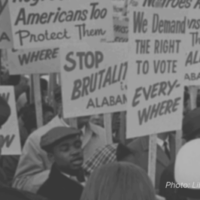On August 14th, the Dow fell 800 points, the S&P was off by 2.9 percent, and the NASDAQ also declined by 3 percent. While this blip should not cause widespread panic, this combined with a yield curve inversion in the 2-year and 10-year Treasury bonds should trigger the start of a conversation about the importance of extending unemployment insurance in the event of a recession.
During the last recession, Congress authorized a program called Emergency Unemployment Compensation (EUC). Because it has been five-and-a-half years since the last EUC benefit was paid, the way this program works may not be fresh in everyone’s minds.
Unemployment Insurance (UI) is a helpful financial stabilizer for unemployed individuals, their families, their communities, and the economy as a whole. Every state administers its own UI program, which provides up to 26 weeks of benefits. (Two states provide more: Montana allows for 28 weeks and Massachusetts provides for 30 weeks except in times of extremely low unemployment.) Since the last recession, however, 10 states have cut the number of weeks of benefits for which workers are eligible. While NELP has warned that state-level reductions in UI compensation could pose problems in upcoming recessions, we believe that federal extensions can help mitigate this future risk.
In theory, at the onset of an economic downturn, an automatic extension system in UI called Extended Benefits (EB) should trigger automatic increases in the number of weeks people are eligible for benefits. However, because of problems with the way the triggers are structured, EB does not kick in fast enough to provide benefits as quickly as they are needed. While we should absolutely modify those triggers, until that happens, we expect that Congress will act as it has in the past to swiftly extend benefits through an ad hoc extension program like EUC.
EUC was a fully federally funded extension of regular unemployment benefits for workers who exhausted state-level benefits. On June 30, 2008, as unemployment rates began to rise dramatically during the mortgage crisis, President George W. Bush signed into law legislation to provide 13 weeks of EUC benefits. Subsequently, as the economy remained weak, Congress passed additional extensions providing benefits through 2013, which for a time resulted in up to 99 weeks of benefits between regular UI, EB, and EUC for claimants in states experiencing continued high unemployment.
During the last recession, UI’s countercyclical benefits closed almost one-fifth of the shortfall in GDP, prevented an estimated 1.4 million foreclosures and, in 2009, prevented five million workers from falling into poverty while saving two million jobs. That is because UI does more than give people a cash benefit they spend right away in their communities; it also gives workers access to employment services and keeps people attached to the workforce through federal work-search provisions. There’s even evidence that longer duration of benefits ensures that workers find a more suitable match at their next job—a feature that also helps employers find the best candidates.
While the next recession may not be imminent, workers should understand the importance of extending unemployment insurance through programs like EUC, and policymakers should start to think about how they plan to approach a recession well in advance of it happening. Our economic recovery will depend upon it.




